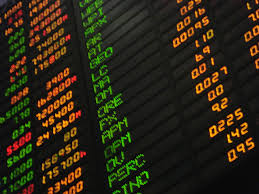Business and Economy
Stocks retreat as optimism for a Greek debt fades
NEW YORK (AP) — Stocks retreated Wednesday, erasing all of the week’s earlier gains, as negotiations between Greece and its creditors seemed no closer to reaching a resolution.
The Dow Jones industrial average lost 178 points, or 1 percent, to 17,966.07. The Standard & Poor’s 500 index lost 15.62 points, or 0.7 percent, to 2,108.58 and the Nasdaq composite lost 37.68 points, or 0.7 percent, to 5,122.41.
Investors had been hopeful earlier in the week that the Greece problem was reaching the finish line, but those hopes diminished as Wednesday wore on. European finance ministers cut short a meeting on Greece’s proposals, citing major policy differences. They plan to meet again Thursday. Greek stocks fell 2 percent.
Prime Minister Alexis Tsipras criticized the International Monetary Fund as being needlessly picky about the reforms Greece had proposed. Creditors are demanding, among other things, a freeze on pensions, scrapping some proposed taxes and surcharges on business, and higher sales tax on some goods.
Greece needs an agreement by June 30, when a key debt payment is due to the IMF. In a worst-case scenario, a Greek default could potentially lead to Greece abandoning the euro.
“Greece has to be the slowest moving train wreck in financial history; but in a way, it’s a good thing because if Greece had failed in 2012 we’d be in a much more dire situation,” said Jack Ablin, chief investment officer at BMO Private Bank, which oversees $66 billion in Chicago.
Investors also remain focused on when the U.S. Federal Reserve might increase its key interest rate for the first time in nearly a decade. Fed Governor Jerome Powell said at an event on Tuesday that he expects the U.S. central bank to begin raising its benchmark interest rate in September, with a second rate rise coming in December.
The expectations of an interest rate increase rose after a report released Wednesday showed that the U.S. economy contracted less than previously thought in the first three months of the year. The Commerce Department said first quarter GDP fell 0.2 percent, compared with its previous estimate of 0.7 percent.
U.S. government bond prices rose. The yield on the 10-year Treasury note fell to 2.37 percent from 2.40 percent the day before.
Among individual stocks, Sysco rose $1.16, or 3 percent, to $38.75 after a federal judge ruled that the food distribution company could not merge with rival US Foods. The Federal Trade Commission had sued to block the deal in February.
Homebuilder Lennar rose $2.06, or 4 percent, to $51.06 after the company reported results that beat analysts’ expectations. Other home builders such as Pulte, D.R. Horton and Toll Brothers also rose.
In energy trading, the price of oil fell after the Energy Department reported an increase in stockpiles of gasoline and diesel in its weekly inventory report. Benchmark U.S. crude fell 74 cents to close at $60.27 a barrel on the New York Mercantile Exchange. Brent crude, a benchmark for international oils used by many U.S. refineries, fell 96 cents to close at $63.49 a barrel in London.
In other trading on the NYMEX, wholesale gasoline fell 2.1 cents to close at $2.056 a gallon. Heating oil fell 3.5 cents to close at $1.876 a gallon. Natural gas rose 3.3 cents to close at $2.759 per 1,000 cubic feet.
In metals trading, gold closed down $3.70 to $1,172.90 an ounce. Silver rose 12 cents to $15.85 an ounce and copper rose a penny to $2.62 a pound.
The euro rose to $1.1199. The dollar was little changed against the Japanese currency at 123.88 yen.






















